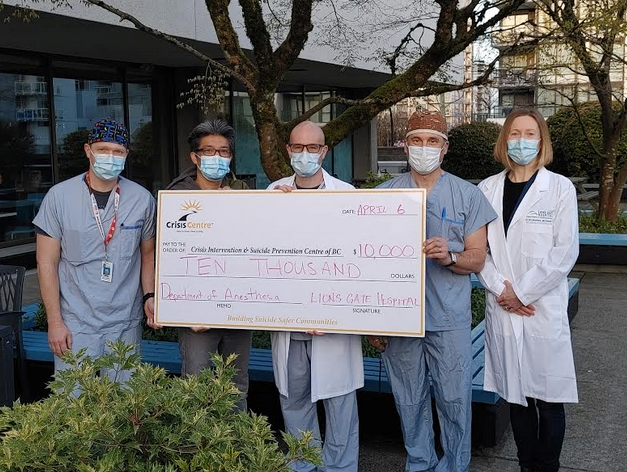Among her colleagues and friends, Dr. Kitt Turney was known as an energetic go-getter.
She’d been part of the UBC women’s rowing team during her undergraduate studies and was known for her beautiful singing voice.
After graduating medical school, Turner joined the anesthesiology department at Lions Gate Hospital in 2018.
“She became the social co-ordinator for our group,” said Dr. Jaqueline Hudson, a colleague in the anesthesiology department at Lions Gate Hospital, adding that Turney would organize weekly pub nights where anybody could come by and chat about work. “She was just a very vibrant, dynamic and wonderful physician,” said Hudson.
But Turney also had a secret, which she hid from her colleagues.
She was suffering from depression.
“I think we think that we could pick out the people who were suffering,” said Hudson. “And then sometimes people are able to hide that really well.”
Turney was one of those, who managed to mask her struggles from her colleagues. “She managed to hold it together and perform at an outstanding level still at work until the day she took her own life,” said Hudson.
In the aftermath of Turney’s suicide in December 2019, her colleagues struggled to understand what had happened “because it rocked our community,” said Hudson.
They also resolved as a group to put a renewed focus on mental health.
“We rekindled the awareness of how important it is for us to recognize if we're struggling, if say somebody's going through a divorce, or their family members are sick, or they feel unwell, or they're burnt out,” said Hudson, “and to try and make space for providing a place to heal from that.”
That doctors and other health care professionals can also have mental health challenges isn’t always willingly acknowledged, she said.
“It’s kind of an expected that you will be a better person than the general population, that you can stay up for 24 hours, you can work through the night, you can provide a high level of care, and your personal grievances or problems in life do not come into it, that you'll be willing to sacrifice for the career at all costs, that it won't take a toll on you.”
That, however, isn’t reality.
Rates of suicide in medical professionals are high compared to the general population, said Hudson, and higher still for anesthesiologists where severe depression and access to powerful drugs can present a lethal cocktail of circumstances.
This spring, the anesthesiology group at Lions Gate made a donation of $10,000 to the B.C. Crisis Centre in Turney’s honour, using money that in other years would have gone to social events now on hold due to pandemic restrictions.
It’s an acknowledgement, said Hudson, that “anyone can struggle,” and of the need to recognize those signs in the medical professions.
The pandemic has only highlighted that, she said, with concern rising over pressures that COVID-19 has put on staff at Lions Gate Hospital, as well as the push to catch up on any cancelled elective surgeries.
“The donation for us is very heartfelt and it highlights, I think, that in our society as a whole and specifically for healthcare providers, that stress, burnout and depression are very real.”
Seek help - for yourself or others
If you - or someone you know - is in crisis or distress, know that you are not alone. There is help and there are people who will listen.
Talk to a family member, a teacher, a doctor, a coach or a person you trust.
Call 9-1-1 or go to the nearest hospital emergency department.
Call the Crisis Centre at 604-872-3311 or B.C.-wide at 1-800-SUICIDE or go online to chat at www.CrisisCentreChat.ca.
Young people can call the Kids Help Phone at 1-800-668-6868, go online through YouthinBC.com to text or use Facebook Messenger to speak to a professional counsellor.
Families and survivors can also get help at SAFER (Suicide Attempt Follow-up, Education & Research) at 604-675-3700.



